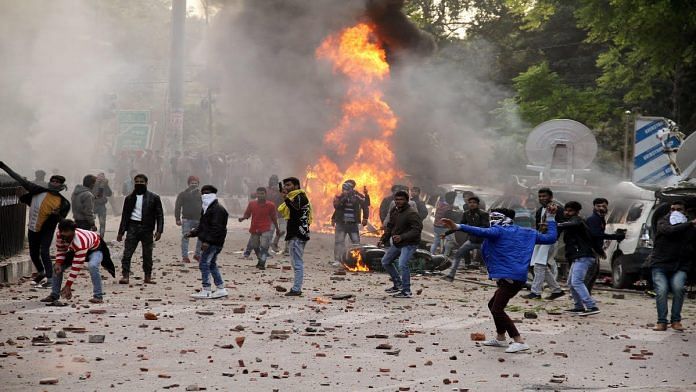New Delhi: After being pulled up by the Supreme Court last week, the Yogi Adityanath-led government in Uttar Pradesh told the court Friday that it has withdrawn the 274 recovery notices issued to anti-Citizenship (Amendment) Act protesters in December 2019 for damage caused to public property.
The court accepted the state government’s submission that all those who were issued notices can still be proceeded against in accordance with the Uttar Pradesh Recovery of Damages to Public and Private Property Bill, which was passed last year. The state government told the court that these cases would now be referred to tribunals constituted under this law.
The apex court also directed the state government to refund any recoveries made from the protesters under the recovery notices issued so far.
On 11 February, a bench comprising Justices D.Y. Chandrachud and Surya Kant had rapped the UP government for these notices.
Garima Prashad, additional advocate general appearing for the UP government, had told the court that 106 FIRs were registered against 833 ‘rioters’ in the state following large-scale anti-CAA protests, leading to issuance of 274 recovery notices against those who were allegedly part of the mob.
Prashad had also told the court that these orders were passed by additional district magistrates. This, the court noted, had violated its earlier orders which required a sitting or retired high court judge, appointed as a ‘claims commissioner’, to assess damage to public property in such cases and fix liability.
“You have become complainant, you have become witness, you have become prosecutor…and then you attach properties of people. Is it permissible under any law?” the court had asked.
The bench had then told the government to withdraw the notices. “Withdraw the proceedings or we will quash it for being in violation of the law laid down by this court,” it said.
The court made these observations while hearing a plea filed by advocate Parwaiz Arif Titu, through advocate Nilofar Khan, last year, seeking quashing of these notices.
Titu had alleged that the notices were issued in an “arbitrary manner”. The plea had claimed that even a person who had died six years ago at the age of 94, and two people aged above 90 years, had received these notices.
Also Read: 3rd deadline missed, Bengal BJP leaders to knock on PM Modi’s door to protest CAA delay
Violation of SC judgments & a UP law
Last week, the court had asserted that the notices violated two of its earlier judgments — one passed in 2009 and another in 2018.
The 2009 judgment had noted that since there was no law to recover damages for losses caused by violence, the high courts can take cognisance of such incidents of mass damage to public property on their own and set up a machinery to investigate and award compensation.
The guidelines had said that a sitting or retired high court judge may then be appointed as a ‘claims commissioner’ to estimate the damages and investigate liability. However, in UP, these notices were issued by district administrators in the state.
Additionally, the UP assembly had also passed the Uttar Pradesh Recovery of Damages to Public and Private Property Bill last year.
This law empowers the state government to set up claims tribunals to decide compensation claims for damages to any public or private property due to riots, hartals, bandhs, protests, or public processions. These tribunals are to be headed by a retired district judge as chairperson, and would also include an officer of the rank of additional commissioner as a member.
The court had observed that the notices issued by the UP government prior to the enactment of this law were in breach of its 2009 and 2018 judgments, and were liable to be quashed.
(Edited by Gitanjali Das)
Also Read: With CAA rules nowhere in sight, Centre allows 5 states to implement religion-based citizenship



